Why Young Women Should Consider a Career in the Technology Sector
Thursday 8 February 2024

How bad are we talking?
In their most easily understandable terms, ‘gender imbalance’ refers to, “The proportion of males to females in a given population". While ‘gender inequality’ refers to, “Sex and/or gender determine different rights and dignity for women and men.”
Within the tech sector, both gender imbalance and inequality are prevalent. This is not limited to a specific category based on age or experience, it spans. Throughout this blog, I will make reference to two categories, ‘early/junior level’ refers to those who are just starting their career in a particular sector. While ‘experienced/senior level’ refers to those who have previously, constantly worked in a particular sector.
Let’s first look at ‘early/junior talent’, research shows that for the academic year of 2022/23, only 23% of students studying a degree in Computer Science identified as female or non-binary. This is only a 4% increase over 5 years. At this rate, it will take more than 30 years to reach parity in this subject. This percentage only continues to decrease the further up the managerial chain we go. Looking at the ‘experienced/senior level’, from 1984 to 2022, there was only a 1% increase in the number of females who hold a leadership role in the tech sector. Shocking right?
So why is this? What challenges are girls and women facing in the tech sector?
How many of us have memories of when we attended primary school, when it came to being asked ‘What would you like to dress up as’ and ‘What would you like to be when you were older’? For most of us, we will remember how the little boys were encouraged to consider traditionally masculine jobs to include engineers, mechanics and pilots. Meanwhile, us little girls were encouraged to consider traditionally feminine/nurturing jobs to include teachers, nurses, and administrators.
These stereotypes projected by primary school Teachers have a direct impact on the number of girls who later in post-primary education (whether school or college) choose STEM subjects at key stage 4 (GCSEs) and key stage 5 (AS Level and A Level). Female students are less likely to consider themselves to be best at a STEM subject. In 2019, only 3% of female students would consider taking IT at A level while only 51% of female students felt that pursuing a STEM subject would lead to a job in the future. As mentioned earlier, this had a direct impact on the number of young women pursuing a STEM degree at University. The small amount of young women studying degrees in Computer Science, Engineering and Technology reduces further while at University due to dropouts (often the reason is the lack of other female students on the course), meaning the conversion of those who graduate with their degree into a career in the tech sector is reduced further.
In the world of work, at the ‘experienced/senior level’, challenges facing women remain but are different in nature. These cultures and behaviours are not limited to the tech sector, they can be observed across other male-dominated industries. One of which is termed ‘bro culture’, it describes a culture which prioritises men with obnoxious and toxic behaviour, who typically place winning and success above respect for others. The majority of employers in the tech sector do not tolerate this behaviour or culture. However, it can go under the radar and/or unaddressed. It can appear in the form of microaggressions towards female colleagues including; regularly being interrupted by male colleagues, having their opinions and ideas dismissed or undervalued, repeating (a male colleague repeating a female colleague's idea), mansplaining (providing an explanation when a female colleague did not ask for one) and being overlooked for promotion. Another reason that women are often overlooked for senior positions is the fact that they are often also juggle the role of primary caregiver for children or elderly parents. Of the small minority of women who do secure a leadership role, 50% have left the role by the age of 35 years old.
The above challenges are not only detrimental to girls and women as individuals, but gender imbalance and inequality is detrimental to tech employers. At the ‘entry/junior level’ it has led to a talent shortage. Diverse teams perform better financially and have increased levels of innovation and decision-making. Without efforts to change, tech employers are operating at their own peril.
So what initiatives are there to increase awareness of the imbalance?
It is of vital importance to educate girls about careers in the tech sector and to encourage and support them to pursue it long before University and entering the world of work. It must start at the primary and post-primary levels, there is a direct ripple effect.
The year 2011 saw the launch of ‘International Girls in ICT Day’. The movement is aimed at girls and young women aged 12-24 years old, where they are encouraged to pursue STEM education and inspired to work in STEM careers. This is only made possible through engaging the tech community in promoting collaboration. Over 377,000 girls and young women have participated across 171 countries. This year the event falls on Thursday 25th April with the theme of ‘Leadership’.
Even for those women at ‘early/junior level’ and ‘experienced/senior level’ roles in the Tech sector, it is important to remember that there is still a long road ahead to gender balance and equality. The year 1975 saw the launch of ‘International Women’s Day’, which is a global day of celebration, where groups come together to celebrate women’s achievements and rally for women’s equality. The event falls on Friday 8th March with the theme of ‘Inspire Inclusion’.
We cannot underestimate the importance of local, sector-specific networks for women in tech to come together to celebrate success, discuss barriers and tackle how we overcome them. To name a few within NI: Women in Business Tech Roundtables and Conference, Women in Tech Belfast and Women Who Code (If you don’t already, be sure to follow their social media channels).
What efforts can we make as Tech employers make in an attempt to balance the scales?
Kainos is one of the leading Tech employers for Early Careers and beyond in Northern Ireland. As an employer, it is our role to engage girls and young women to want to pursue a career in the tech sector (ideally with us), but also to support and encourage our female employees to progress and thrive.
Attracting Girls and Young Women to kick start their career in the tech sector:
In NI, our Early Careers Talent Acquisition Team, Programme Team and Corporate Social Responsibility Team are majority female. Referring back to the ripple effect of education, a key activity for us is educating and upskilling teachers in how to code. Gone are the days when many of us attended post-primary education and the only tech options at GCSE and A Level were ICT and Technology and Design. Now, examination boards are offering Digital Technology, Software Systems Development, ICT and Computer Science. However, teachers need to feel equipped and empowered to teach these subjects within their schools and colleagues. By upskilling teachers, this ensures that girls and young women have female role models in the classroom which can be the catalyst for kickstarting a career in tech. At the post-primary level, we offer ‘female-only work experience’. We also offer alternative pathways, including our Earn As You Learn Computing Apprentice scheme, launching during NI National Apprenticeship week on Mon 5th Feb. Our campaign has involved putting our job advert through a gender decoder tool, delivering a ‘girls only school’ campaign, sharing female apprentice stories across social media and planning a ‘female-led session’ for our upcoming open evening. At University level, we work closely with Women in STEM societies to provide sponsorship and deliver careers and employability workshops.
Supporting both entry/junior level and experienced/senior level female employees to progress in their roles:
Globally, Kainos has ‘Inspire’ which is our award-winning women’s employee network group (ENG) which was created in 2021 and now has 650+ members. The ENG has three spin off groups:
Inspire Ally – for male employees to support female employees as allies, including our CEO Russell Sloan.
Inspire Family – to support our employees who are on their parenting journey, no matter what stage.
Inspire Health – to support our female employees who are living with health conditions which typically impact only women.
Kainos has an annual promotion cycle, we want to ensure that female colleagues feel empowered and equipped to make an application. As part of Inspire, there is a ‘Mentor Programme’ offered to female employees to receive coaching from a senior colleague on developmental areas which they have identified. Not to mention the fantastic benefits package for all colleagues here at Kainos to include private healthcare for employees (and their dependents), flexible working and a generous holiday entitlement.
If we as a sector can collectively achieve this, girls and young women will take their rightful space in shaping the future, influencing change and ensuring that developments in technology reflect the interests of girls and young women.
Looking for Inspiration?
To thrive in Tech, girls and young women must be exposed to women in leadership positions, fostering inspiration and breaking down barriers to hinder their progress. If you are looking for inspiration, be sure to follow the successful careers of aspirational female employees within Kainos:
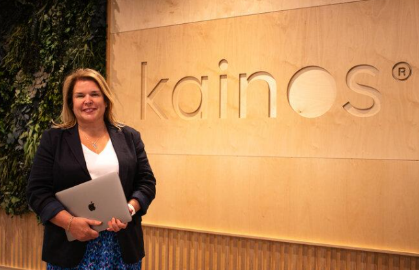
Colette Kidd:
Chief People Officer at Kainos (joined initially as a Graduate Software Engineer)
Women in Tech Awards NI 2023 – Outstanding Woman in Tech Award for 2023
Women in Tech Conference NI 2024 – Key Note Speaker

Ruth McGuinness:
Data and AI Practice Lead
Involvement in winning Microsoft Ireland Data and AI Partner of the Year

Nikkala Pokojski:
EAYL Computing Apprentice
Northern Ireland Digital Apprentice of the Year Winner for 2023
UU School of Computing Apprentice Rising Star 2023
Author: Hannah Fleming, Early Careers Talent Acquisition Partner (Digital Services) at Kainos
Connect with Hannah on LinkedIn
Sources:
European Institute for Gender Equality (europa.eu) | StemWomen.com | INews.co.uk | Department for Education-Attitudes towards STEM subjects by gender at KS4 | LinkedIn-The Gender Gap in Tech: Challenges and Opportunities| ITU-Girls in ICT | LinkedIn-Encouraging young women to choose ICT careers| Telenor-Why ICT? Four experts on why young women should choose a career in ICT
Author Hannah Fleming
Thursday 8 February 2024




 Contact us
Contact us
 Share on social
Share on social Share with a friend
Share with a friend Facebook
Facebook LinkedIn
LinkedIn
 Twitter
Twitter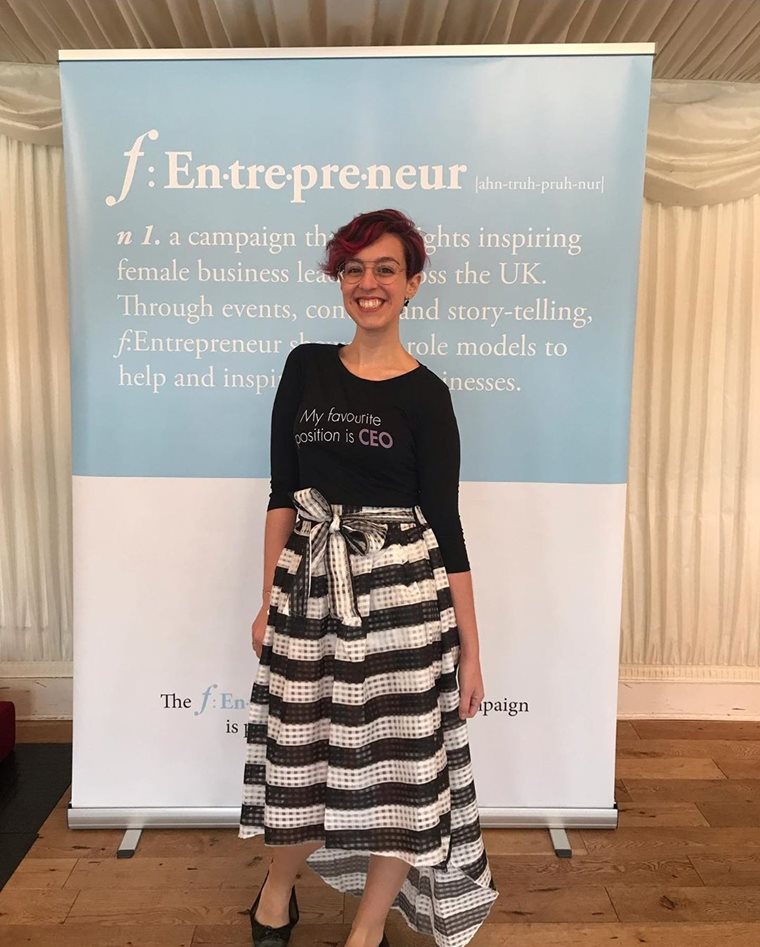




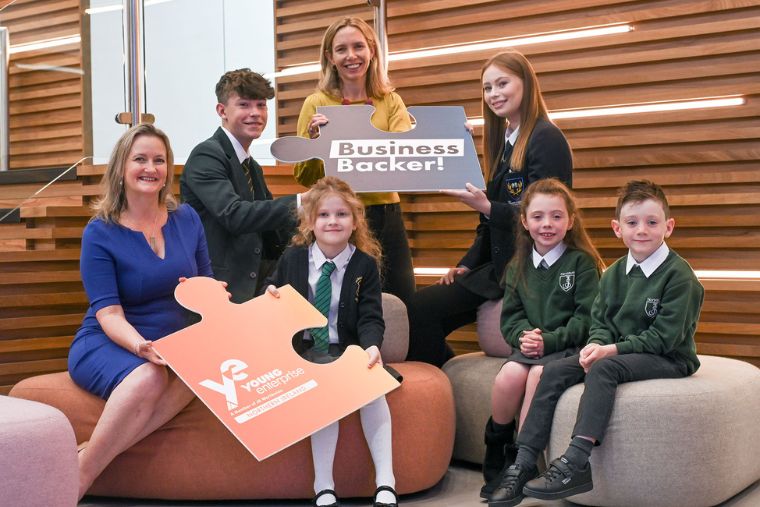

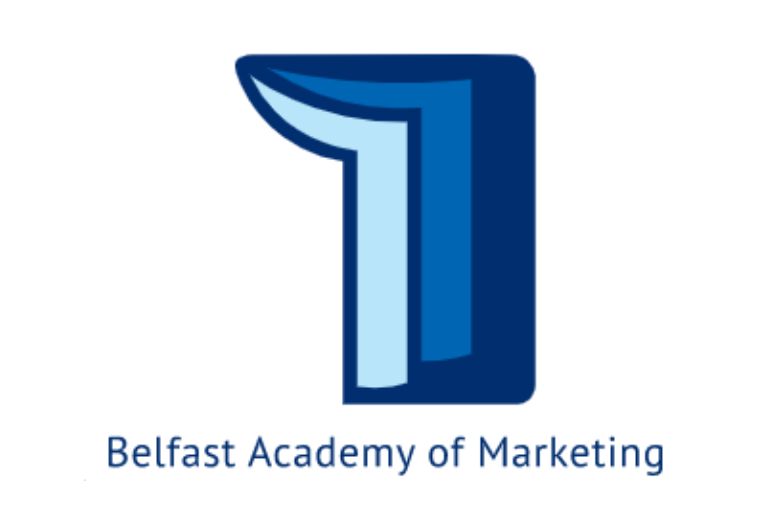







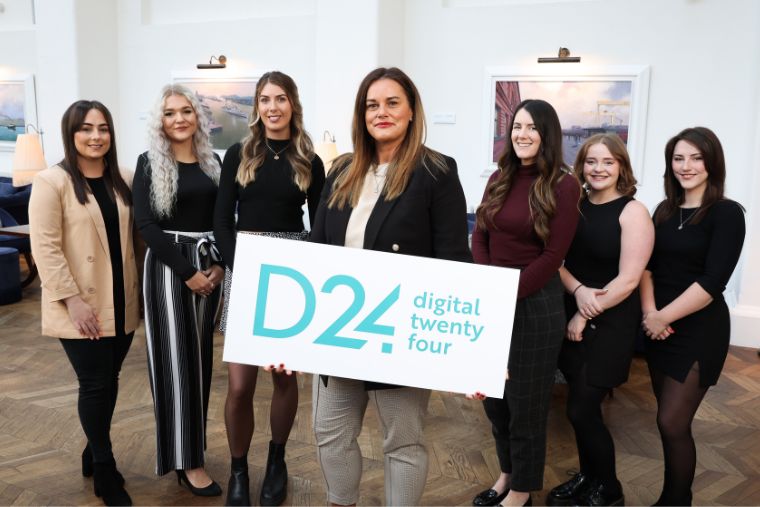




 Get in touch with us
Get in touch with us